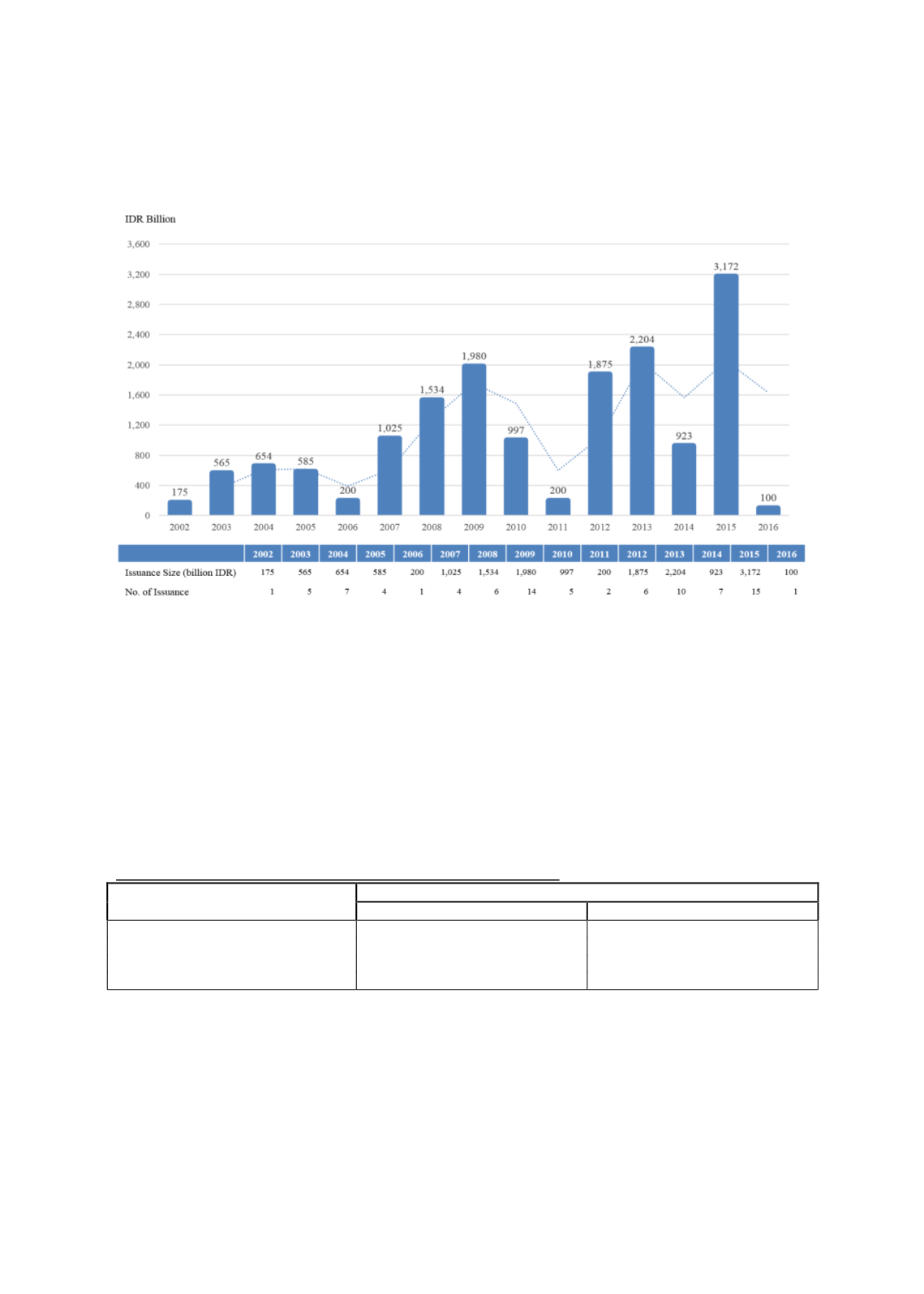

128
Chart 4.41: Development of Indonesia’s Domestic Corporate Sukuk (2002-2016)
Source: OJK
To address the challenges faced by the industry, the OJK (and its predecessor, Bapepam)
has―through its capital market master plans and roadmaps―identified strategic initiatives to
stimulate the market. These initiatives include the following:
1.
Reducing the amount of documentation required by issuers. As a result, the timeframe
needed to launch a bond/sukuk has been reduced from 45 to 35 days (The Banker Asia,
2017).
2.
Reducing the fees associated with the issuance of sukuk compared to conventional bonds
(as highlighted in the Indonesian Financial Services Sector Master Plan).
An example is the reduction of the OJK’s registration fee:
Issuance value
Registration fee
Sukuk
Bond
IDR 250 billion
IDR 125 million
IDR 125 million
IDR 500 billion
IDR 150 million
IDR 250 million
IDR 1 trillion
IDR 150 million
IDR 500 million
IDR 1.5 trillion
IDR 150 million
IDR 750 million
3.
Encouraging SOEs to fund government infrastructure projects via the sukuk market, and
amending the investment policies of domestic mutual funds to include investment in debt
instruments issued by SOEs. Previously, pension and provident schemes had been
restricted to channeling their funds towards: 1) bank time deposits and certificate-of-time
deposits; 2) corporate shares and bonds, as listed on the Indonesia Stock Exchange; 3)
promissory notes; 4) corporate equities; and 5) land and buildings (OCBC, 2017).
















